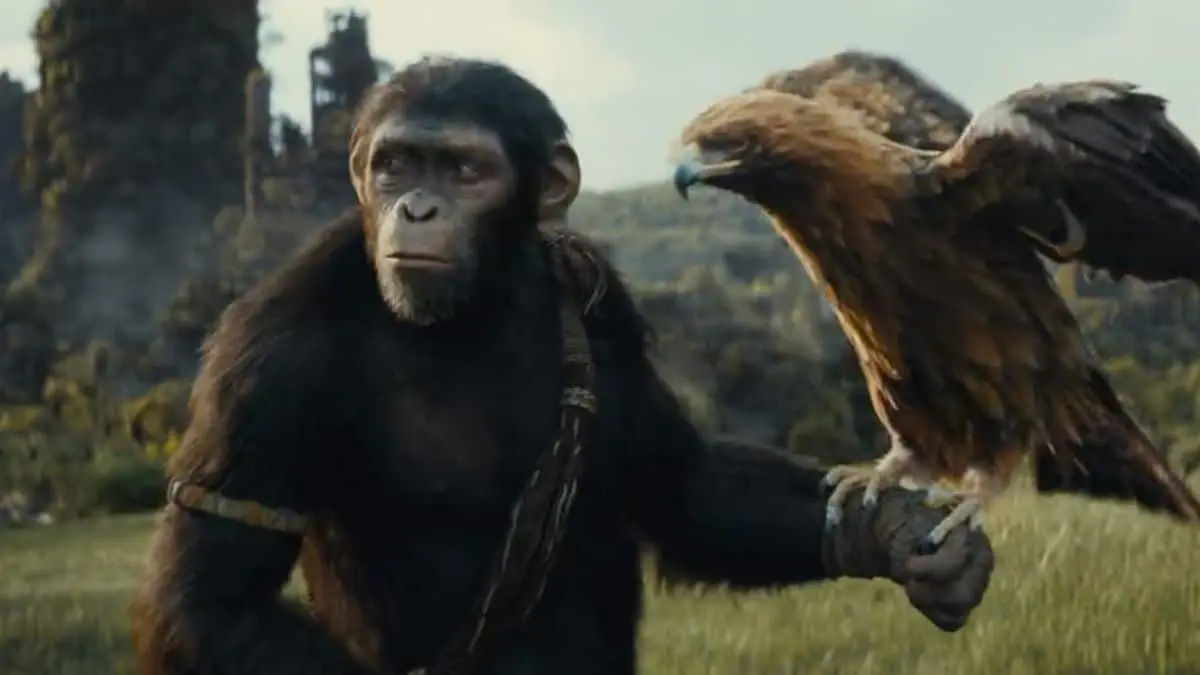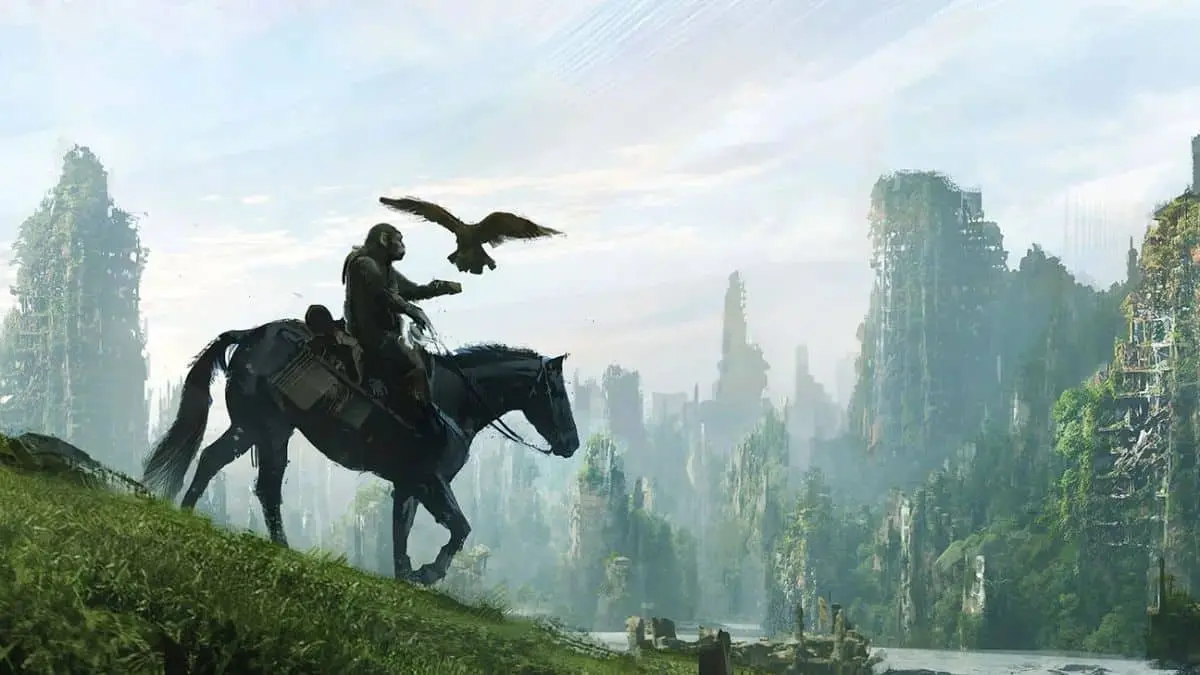The Planet of the Apes series has long been known for delivering sharp social commentary wrapped in a science fiction package. With its distinctive premise of talking apes overthrowing humanity, the franchise has explored themes ranging from racism to authoritarianism and the cataclysmic consequences of a brutal virus. The latest installment, Kingdom of the Planet of the Apes, directed by Wes Ball, continues that legacy while offering a fresh storyline that builds on past narratives.
A Thoughtful Continuation of a Beloved Trilogy
The new film picks up right after the 2011-2017 trilogy concluded, specifically following the death of Caesar, the wise chimpanzee who led his people into a sanctuary away from the remnants of human civilization. In an echo of the biblical story of Moses, Caesar dies before reaching this paradise, leaving behind a gospel of peace, unity, and respect for nature. His memory is venerated by some, but twisted or forgotten by others.
A Fractured World and the Rise of New Powers
Kingdom of the Planet of the Apes leaps forward “many generations,” revealing a fractured ape society that has divided into tribes. Caesar, once a historical figure, has become a mythic entity whose legacy is interpreted in various ways. Proximus Caesar (Kevin Durand) claims to be his rightful heir, building an authoritarian regime by distorting Caesar’s ideals to justify power and control. His coastal tribe, modeled on the Roman Empire, asserts dominance through force and conquest.
A Young Hero’s Journey and the Power of Legacy
Noa (Owen Teague), a young chimpanzee unaware of the historical Caesar, becomes the focal point of the story. His father, Koro (Neil Sandilands), leads their clan by valuing the protection of birds’ nests above all else. However, a violent attack by Proximus Caesar’s soldiers leaves Noa searching for his kidnapped kin. During this quest, he encounters a mute human (Freya Allen) and Raka (Peter Macon), a follower of Caesar’s peaceful teachings who guides Noa toward his greater purpose.

A Mirror to Society’s Downfalls
The film explores how peaceful ideals often become corrupted by power-hungry leaders. Proximus Caesar, in his claim to Caesar’s legacy, twists the original values into a dogma that glorifies strength and authority. He proclaims his kingdom to be a “wonderful day,” while building a society where he stands unchallenged.
His kingdom serves as a grim reminder of the cyclical nature of history. Whether through ancient Rome or the apes’ own distorted view of their leader’s legacy, the story reflects how romanticizing the past can have dangerous consequences. In the quest to reclaim a ‘Golden Age,’ leaders often bend truths to suit their agendas.
A New Chapter with Familiar Lessons
Kingdom of the Planet of the Apes isn’t as enchanting as its predecessors due to the apes behaving more like humans, making it easier to draw comparisons to other narratives like The Lion King. However, the film remains compelling because of its poignant exploration of power, legacy, and the tendency for history to repeat itself. It offers glimpses into the future of the franchise, although the direction remains uncertain.
As the original Planet of the Apes (1968) star Charlton Heston stated, “I can’t help thinking somewhere in the universe there has to be something better than man.” But even as this latest installment seeks answers, it leaves viewers pondering whether a better species has truly emerged.
Also Read: List of the Scariest Monsters and Demons in Dead Boy Detectives



